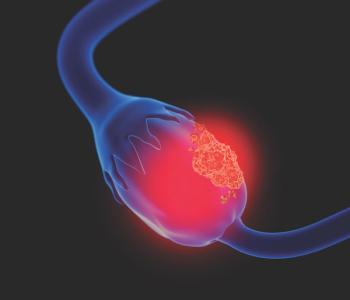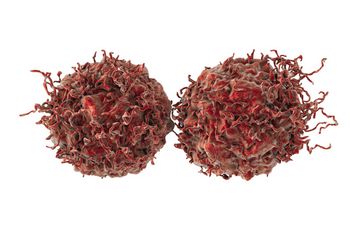
Results from the phase 3 TITAN study shows a combination therapy that includes apalutamide may achieve survival benefit without significant burden of adverse effects.

Results from the phase 3 TITAN study shows a combination therapy that includes apalutamide may achieve survival benefit without significant burden of adverse effects.

Frequent prostate-specific antigen screenings may lower the risk of metastasis at the time of diagnosis and lower mortality risk from prostate cancer among younger African American men.

This discovery could enhance efforts to develop better treatments for breast, ovarian, and prostate cancer.

Investigators developed a genetically distinct and non-toxic strain of salmonella called CRC2631 to select and kill cancer cells, which may be able to be tailored to specific patients.

Among somatic mutations, approximately 89% of patients with metastatic castration-resistant prostate cancer have a potentially actionable mutation.

The safety profile was consistent with the profiles associated with each drug as a monotherapy, with no clinically significant drug-drug interactions observed with the combination.

Staying educated in the formal and informal health care settings surrounding state-of-the-art cancer care in the community practice is essential for success.

The study also analyzed the relationship between ultra-processed food and drink products with 2 other cancer types.

Clinicians have been searching for accurate, reliable, non-invasive diagnostic tools to differentiate early stage, less dangerous, and more treatable stages of the disease from the aggressive, high-grade and likely-to-spread forms.

Angelo Moore, PhD, MSN, RN, NE-BC, program manager, Office of Health Equity at Duke Cancer Institute, discussed how one of his goals was to truly involve the community in educating others on the clinical guidance, primarily for prostate cancer screenings.

Addressing genomic differences and socioeconomic disparities is essential in order to address the higher incidences and mortality rates for prostate cancer among African American men.

Researchers from the University of Texas MD Anderson Cancer Center found that men with localized prostate cancer who reported a baseline dietary pattern that more closely follows the key principles of a Mediterranean-style diet fared better over the course of their disease.

Relugolix is the first oral drug in this class to receive FDA approval, and it may eliminate some patients’ need to visit the clinic for certain treatments.

FDA approves Gallium 68 PSMA-11, the first drug for PET imaging of prostate-specific membrane antigen–positive lesions in patients with prostate cancer.

FDA lift clinical hold placed on the phase 1 PSMA-101-001 study of the chimeric antigen receptor T-cell therapy P-PSMA-101 in patients with metastatic castration-resistant prostate cancer.

Bacteria in the gut may play a role in the treatment outcomes of patients with prostate cancer taking oral medications, according to a recent study.

The FDA grants fast track designation to the highly-selective N-terminal domain inhibitor EPI-7386 for the treatment of adult patients with metastatic castration-resistant prostate cancer.

Since 2004, the FDA has approved different treatments for advanced prostate cancer, adding almost 2-3 indications per year for the past 15 years.

On February 14, 2018, the FDA approved apalutamide (Erleada) by Janssen Biotech Inc for the treatment of nonmetastatic castration-resistant prostate cancer (NM-CRPC).